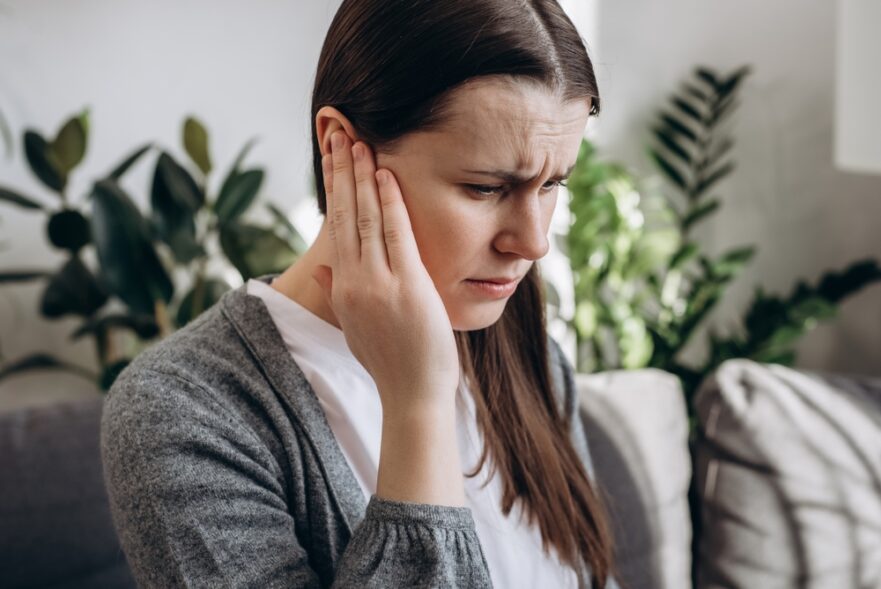Hearing loss is much more varied and complicated than many people realize. There are several types that are categorized by where in your auditory system the damage occurred and when the loss was first noticed. Sometimes the hearing loss can be remedied, but no matter what type you have, you need to have it checked out to adjust or treat as needed.
Conductive Hearing Loss
Your auditory system functions like a chain reaction. Sound waves are funneled into your ear via the pinna (the big flap on the outside of your head) and through the ear canal to the tympanic membrane (your “eardrum”). The sound waves hit the membrane at certain frequencies that push into the membrane, which is attached on the other side to a chain of three bones in a space called the middle ear (or the tympanic cavity). These bones move with the membrane; the last bone is connected to another membrane. On the other side of that membrane is the inner ear, part of which handles your balance. The other part handles hearing; this is the cochlea, which contains tiny hair cells that move with a fluid that gets pushed in waves by that membrane.
A conductive hearing loss is one in which something is wrong with the outer or middle ears. Maybe the bones are broken or stuck; maybe there’s a blockage. Some forms of conductive hearing loss can be fixed or improved with surgical or other medical treatment. For example, a blockage made of earwax can be removed.
Sensorineural Hearing Loss
Sensorineural hearing loss is where the damage causing the loss is in the cochlea or the auditory nerve, which connects the inner ear and the brain. The hair cells in the cochlea release neurotransmitter chemicals that travel up the nerve; the hair cells may be damaged, a tumor on the nerve, or another problem may have formed. This is much harder to solve and usually requires a hearing aid, cochlear implant, or another more intense solution.
Mixed Hearing Loss
Mixed hearing loss is what you think it is; you have a combination of conductive and sensorineural hearing loss. This type of hearing loss usually requires medical clearance from an otolaryngologist (ENT) before the loss can be corrected.
Age-Related Hearing Loss (Presbycusis)
Your auditory system can gradually weaken as you age, with no other apparent cause in sight. This is known as age-related hearing loss or presbycusis. People typically treat this by getting hearing aids. Fairway Hearing Center offers a wide variety of hearing aids in Rehoboth Beach and nearby towns in lower Delaware.
Noise-Induced Hearing Loss
Noise can damage your hearing. When sounds are loud, their waves are big and strong, and they blast into whatever is in their way. Sometimes this can damage the hair cells in the cochlea by creating waves in that cochlear fluid that knock over the hair cells and damage them permanently. Researchers have noticed that the hair cells that respond to frequencies around 4000 Hertz tend to be affected the most. When you have a hearing test, your audiogram will show a dip in hearing around that frequency. This is known as a noise notch. While it’s not known that something like that is noise-induced, it’s common enough that audiologists can say it’s consistent with the pattern associated with noise-induced hearing loss.
Congenital Hearing Loss
Congenital hearing loss is the loss you have from birth. It can be conductive or sensorineural; depending on what’s going on, it could respond to surgery (e.g., a congenital physical blockage in the ear canal), or it could require hearing aids or even require that the child who has the hearing loss be taught sign language if the hearing loss is severe enough.
Unilateral Hearing Loss
Unilateral loss is a one-sided loss. It can result from something simple, like a clog made of earwax, or signal something more serious, like an auditory nerve tumor. If you have a unilateral loss, especially if it’s sudden, you need to see a medical doctor or otolaryngologist (ENT) immediately, just in case it is serious. This is a type of loss that can serve as an early warning. Fairway Hearing Center can give you a full evaluation if you suspect hearing loss in Dagsboro, DE, or need a hearing test. Contact us to set up an appointment.

